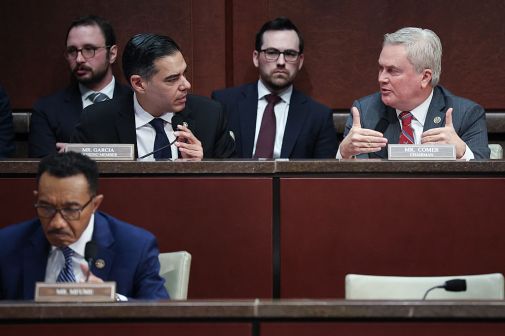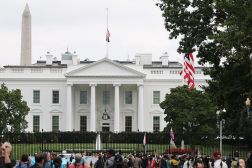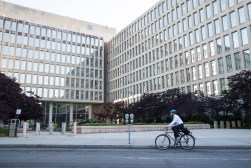U.S. CIO: FITARA promotes broader IT discussion in agencies

Almost a year since issuing his guidance on agency implementation of the Federal IT Acquisition Reform Act, U.S. CIO Tony Scott sees the law creating a broader impact than originally intended for federal IT.
FITARA was enacted to centralize IT spending under CIOs and give them a seat at the table with other agency chiefs for budgeting purposes, and in doing so, it has culturally propelled IT to a major focal point concerning mission, Scott explained Wednesday during an ACT-IAC event on implementation of the law
“While FITARA was meant to address a set of things, it has big wings that have helped lift a bunch of other things that needed to happen in the federal government,” he said.
Agencies are required by April 30 to submit their annual updated FITARA self assessments to the Office of Management and Budget.
Since its passage, FITARA has paved the way for the federal IT community to rally around successive issues, Scott said.
“The FITARA conversations helped us have better cybersecurity conversations,” he said. “I would tell you that as we get into this dialogue about upgrading and replacing legacy IT systems, whether there are cybersecurity risks or not, FITARA has helped those discussions … I think as we’ve talked to Congress about what needs to be done in each agency, FITARA has helped us with those conversations.”
“For the first time, what I see is a much broader conversation taking place about the role of IT in agencies,” Scott added. “As the government begins to really embrace digitization and really begins to understand how information technology can create better customer service, how it can create operating efficiencies, how it can do a bunch of the things agencies want to do as a part of their mission, a better conversation around how we use IT, how we leverage it to support our missions, is an important thing to happen.”
In that sense, FITARA’s spotlight on the importance of IT in federal agencies helped prepare the ground for the IT Modernization Fund — a one-time $3.1 billion revolving fund from which agencies can apply to pull funds to upgrade their legacy systems, with the obligation to pay back the investment from the savings they make — Scott said.
Democratic Whip Rep. Steny Hoyer of Maryland introduced a bill Monday that would bring the fund to life. Rep. Ted Lieu, D-Calif., has immediately stepped up to lobby for the law, saying Tuesday in a statement that “a 21st Century government depends on technology to serve the people, and this legislation will go a long way in making sure that our IT systems are both modern and secure throughout the government.”
Scott hopes the provisions of FITARA will bolster CIOs in using the ITMF, if passed, to break the cycle of spending to keep ancient legacy systems running.
“We’re spending a tremendous amount of money, and we’re spending it inefficiently and absolutely on the wrong things,” he said.
With the fund, agencies wouldn’t “have to wait until they get lucky at the appropriations lottery or whatever,” Scott said. Instead they could let their business cases do the talking.
But most importantly, Scott sees great potential in the modernization fund’s requirement that agencies repay the investment.
“When leadership has to pay for something over time, they pay attention to it and make sure it’s going to go well. They make sure there’s the right leadership in place,” he said. “They make sure that the right business decisions get made. This is something they have to live with for a while … It’s called skin in the game. It’s a simple principle.”
Scott added: “It should help keep the CXO-level folks in an agency engaged in these critical IT upgrade and replacement projects.”
But first the bill must make it through Congress. Surprisingly, Scott said he hasn’t yet seen the fund discussed in a partisan manner.
“I think everybody realizes this is a pretty big problem and a pretty important things for us to go and get,” he said.
“What I hope we can do at the end of the day is get a new motion going,” Scott said. “And this new motion would be one that looks like, sounds like, walks like, talks like continuous upgrade and replacement. Cause the world I know of IT is that you’re never done.”






